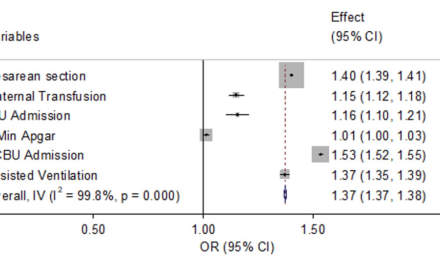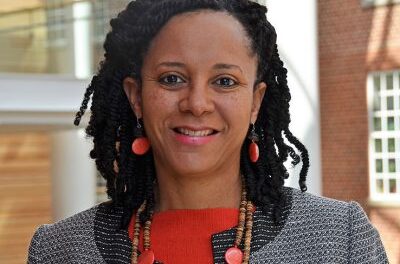
Thousands of people in the Carolinas report being subjected to some kind of intimate partner violence each year.
CHARLOTTE, N.C. — Editor’s Note: This story discusses domestic violence, which may include descriptions of violent acts. Reader discretion is advised.
On Saturday, President Joe Biden released a statement marking the beginning of the 16 Days of Activism against Gender-Based Violence. Biden, who wrote the first iteration of the Violence Against Women Act during his time as a senator in 1994 and reauthorized the act in 2022 as president, said there’s still much work to be done.
“An estimated one in three women globally will experience physical violence, rape, or stalking at some point in their lifetimes. It’s an outrage,” he said. “Around the world, particularly in areas of conflict, countless women and girls suffer at the hands of perpetrators who commit gender-based violence and use rape as a weapon of war. And all too often, women and girls from historically marginalized communities—including people of color, people with disabilities, and people who identify as LGBTQI+—are disproportionately affected.”
UN Women, an organization within the United Nations, traces the international campaign back to 1991. This year, citizens are encouraged to show the concrete actions they’re taking to help end gender-based violence, while also calling on governments to share how they’re investing in prevention.
For Sa’idah Sudan, that means working as a domestic violence advocate. Sudan is a domestic violence lead with Penny Appeal USA and runs the Baitul Hemayah shelter in Charlotte, the first Muslim-run shelter in the city that serves women of all ethnicities, nationalities, and faiths. She told WCNC Charlotte one of the main trends she’s seeing tied to domestic violence is homelessness.
“I’m looking at a system where women are suffering from domestic violence, then they leave the household that they are in either because they have to or they can’t go back home,” she said. “And now, after a certain amount of time, these women are homeless.”
Sudan said without shelters or access to aid or family members, many women fleeing domestic violence often end up right back in an abusive home, especially during the colder months. Women who have children may do so because it means keeping them out of the cold.
“They have nowhere else to go,” she said. “A lot of women, what I’m seeing, are traveling from Minnesota, Wisconsin, New York — a lot of them are traveling from far away just to get away.”
Shelters like Baitul Hemayah, Sudan said, have to meet certain guidelines to be recognized as a shelter. They also rely on grants from local, state, and federal governments. Sudan also notes there are between 1,500 to 1,700 shelters for women across the country, and they’re often working to find ways to ensure they can help as many people as possible.
“I have four bedrooms, but I’ve got a cot. I’ve got a playpen, that gives me one more person and a baby, as opposed to just those four rooms,” she said. “I have a pullout couch, pull the couch out, let mom sleep with the baby. We have to be able to roll our sleeves up and just jump into it and figure it out. No one should be left out there in the cold with an eight-month-old, with a six-month-old, and have to go back to an abuser. It shouldn’t be that way.”
The needs for domestic abuse survivors in the Carolinas are highlighted by state advocacy groups. The North Carolina Coalition Against Domestic Violence estimates that 35.2% of women in the Tar Heel State face domestic violence and stalking in their lifetime. Just across the border, the South Carolina Coalition Against Domestic Violence And Sexual Assault says 42.3% of women in the Palmetto State face intimate partner violence. In 2021, data from the South Carolina State Law Enforcement Division revealed that 25,580 simple domestic assaults were reported, while 4,214 domestic aggravated assaults were recorded. That year, 56 people were killed in homicides tied to intimate partner violence.
Sudan said there are more stories behind the numbers. The NCCADV says women who are disabled, part of the LGBTQ community, who are Black or a woman of color, or who have immigrated are also at increased risk. Children who have grown up in homes where domestic violence was part of their upbringing are also at increased risk of becoming victimized as adults, something Sudan says is part of behavior modeling.
“Sometimes, when you grow up in a domestic violence home, you are a child that sometimes learns that behavior, and then you are sometimes that child that accepts that behavior,” she said. “That is a learned behavior.”
While some people are able to break that cycle, it’s a gargantuan task. Sudan said abusers can try to claw back a victim financially or through custody fights as well, making leaving even more challenging. But she said once a victim can get out and get help, gears start turning at places like Baitul Hemayah to see what is needed.
“That first step is leaving,” she said. “We find out what it is, through their case management, what they need. We have interns that come into the shelter, they help them find jobs, they help them upload their resumes. If they want therapy, they’ll find out what day is that they can get therapy and we’ll start from there. Once they get a job, we help them save money.”
Sudan says helping domestic violence survivors takes more than shelter workers and case managers, encouraging anyone who wants to take concrete action to start asking how they can help.
“If you’re that person that volunteers and you have a gift, you want to be able to help people, reach out to your local shelters,” she said. “We all got a hand in this.”
Sudan also hopes to see more shelters networked together and cooperating with each other, allowing survivors to find space and services when one place is full.
If you or a loved one is facing domestic violence, help is readily available. You can call the National Domestic Violence Hotline at 800-799-7233 or text START to 88788. Resources for help are available in both North Carolina and South Carolina.
Contact Nick Sturdivant at nsturdiva1@wcnc.com and follow him on Facebook, X and Instagram.



